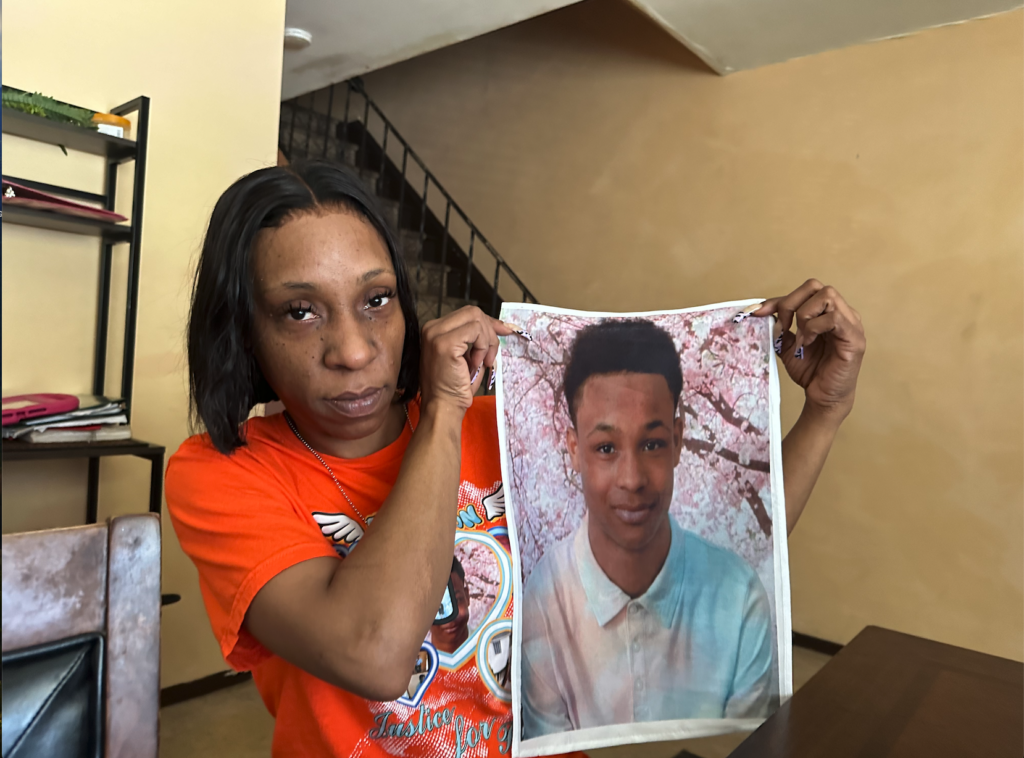New York City sues Riverhead, Suffolk County and dozens of municipalities over migrant ‘state of emergency’ orders

The fate of tens of thousands of migrants bused to New York City since last spring could ultimately be determined by the courts.
The city filed a lawsuit Wednesday against Suffolk County, Riverhead and 29 other municipalities for issuing “unlawful emergency executive orders” to prohibit the city “from arranging for even a small number of asylum seekers to stay … within their jurisdiction.”
The filing came in the middle of a week in which New York City Mayor Eric Adams went to increasingly extreme lengths to find space to house some of the more than 74,000 migrants who have arrived in the city over the past year. On Monday, he floated the idea of paying New York residents to house migrants and migrant families in their homes. On Tuesday, the mayor offered to put up migrant families in Gracie Mansion.
Last month, Riverhead became the first municipality on Long Island to issue an executive order declaring a “state of emergency” prohibiting local hotel and motel owners from signing deals with the city to temporarily or permanently house asylum seekers.
Less than two weeks later, Suffolk County Executive Steve Bellone followed suit and issued a countywide state of emergency. Earlier last month, Governor Kathy Hochul also declared a statewide emergency over the vexing and controversial issue.
Ms. Aguiar said Wednesday afternoon that town officials have not received a summons or any formal complaint and will wait to review the filing before commenting publicly.
Facing sharp criticism locally for issuing the order, Ms. Aguiar stood by her decision. She said that the day after the original state of emergency was issued, the Town Hall switchboard was inundated with residents calling to thank her and the Town Board for taking that step. A spokesperson for Mr. Bellone did not immediately respond to a request for comment on the city’s lawsuit.
In a statement released by the Town Board, accompanying the original executive order, Riverhead officials said that the town has done “more than its fair share” when it comes to affordable housing for low-income families and individuals.
Ms. Aguiar noted in the May 17 emergency declaration that in and around Riverhead there are currently “an estimated 224 overcrowded apartments or over-occupied homes,” as well as, “91 unlawful apartments … 35 unsafe buildings … two large-scale, non-transient homeless shelters … 14 sober homes … and three outdoor homeless encampments.”
Upstate Orange County and Newburgh County both won temporary restraining orders after New York City officials sought to house some migrants at hotels and motels in those areas. Those restraining orders have been challenged by the American Civil Liberties Union.
Meanwhile, Republican county legislators recently voted to hire a lawyer to explore legal options to prevent migrants and asylum seekers being bussed to New York City from being relocated to the county.
In Riverhead, the state of emergency has proven to be extremely controversial.
At a Town Board meeting the day after the order was issued, board members were castigated by several irate residents who opposed the order.
Cyndy Clifford, a member of Riverhead’s Anti-Bias Task Force, said that if you do a Google search for Riverhead “right now,” and read the comments, “you will get far too many stories about how Riverhead is doing a state of emergency to keep immigrants out.”
She said these stories are spreading on the internet.
Ms. Clifford said the town needs to do something to educate the population on the issues, including explaining who the immigrants are, why they come here and how they survive, “to offset these ideas that are so wrong and so damaging and so hurtful and so offensive.”
Lisa Votino of Wading River said she’s been a community organizer for 20 years and has sponsored asylum-seekers. Right now, she said “asylum seekers are caught in a federal mess.”
Most asylum-seekers have sponsors, and when they get out of detention, there are buses waiting to take them to New York City, Ms. Votino said.
She said she wonders why there is a difference in opinion about asylum seekers from Central America and how they are treated, compared to those fleeing war torn Ukraine.
“Why are we welcoming to one group and not the other?” she asked.
The Town Board unanimously supports Ms. Aguiar’s original executive order, which has been repeatedly extended every five days since it was first issued.
“I disagree that we should open the flood gates and take on the world’s problems when we can’t solve our own,” town councilman Tim Hubbard told critics at last month’s meeting.








